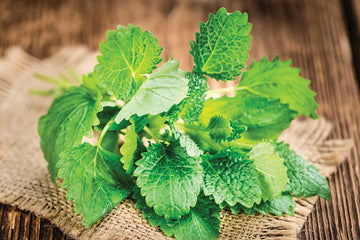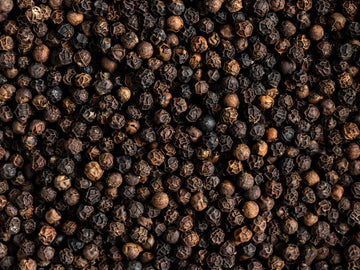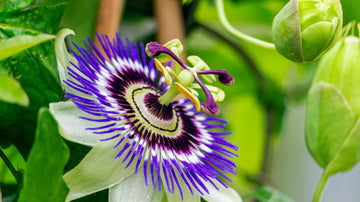Lemon balm is a plant in the mint family native to Europe, Asia, and the Middle East but now naturalized all over the world. The plant produces green leaves with a fresh lemon scent along with small white flowers that are potent at attracting bees. The plant has been used for centuries by the Greeks and Romans to the Tudors to help with mental health disorders, digestive issues, and even for honey production through attracting honeybees. It is still widely used today for such disorders and even has active communities of users on forums such as Reddit.
Lemon balm's binomial name is Melissa officinalis. The genus name, Melissa, is derived from the Greek word meaning honeybee because of the large amount of nectar in the flowers and its ability to attract bees. The most common species of Melissa is officinalis, which is from the Latin word for, "of the shop", in reference to apothecaries who sold the herb as medicine in their shops.

Painting depicting medieval monks selling carmelite water in an apothecary, an ancient tonic containing lemon balm used for a myriad of ailments. It is still sold in German pharmacies today.
How Does Lemon Balm Reduce Anxiety, Stress, and Depression?
To understand how lemon balm reduces symptoms of anxiety, stress, and depression, we must first understand what GABA and serotonin are.
What is GABA and how does it reduce anxiety?
GABA or gamma-aminobutyric acid is a neurotransmitter (helps transmit signals in the brain) that stimulates relaxation by lowering the amount of activity and excitability of neurons it binds to in the brain; it slows things down. High neural activity causes things like restlessness, stress, and anxiety. Many anti-anxiety medications such as benzodiazepines like Xanax work by increasing the effect of GABA.
How does lemon balm work for anxiety?
Lemon balm contains many active compounds that increases GABA levels in the brain. Rosmarinic acid is one of the key compounds that does this. Melissa officinalis also contains flavonoids which are chemicals found all over the plant kingdom that provide fruits, vegetables, and flowers their color. These flavonoids include luteolin and apigenin. The triterpenes ursolic and oleanolic acid are also found in lemon balm and have been researched for their anti-anxiety effects. Lastly, lemon balm contains essential oils such as citronellal, neral, and geranial which are involved in emotional and stress regulation through the brain's limbic system.
Neurotransmitters like GABA and serotonin cannot stay in the brain forever as their effects would be constant, they need to be broken down to maintain the correct levels and then more is made when required. GABA is broken down by an enzyme called GABA transaminase. The rosmarinic acid in lemon balm is thought to inhibit transaminase which leads to less GABA being broken down and thus higher GABA levels in the brain [1]. Through this mechanism, lemon balm reduces worry and nervousness and provides a sense of calm and relief from anxiety and stress.
What is serotonin and how does it help with depression?
Serotonin is a neurotransmitter made from an amino acid called tryptophan. It is found all around the body but primarily in the brain, digestive tract, and blood platelets. It is often referred to as the "feel-good" chemical because it plays a significant role in regulating mood, sleep, and digestion.
90% of serotonin is produced in the gut, while about 10% is produced in the brain. Serotonin in the brain is produced in the brainstem and released from nerve endings into the space between neurons called the synaptic gap. After that, it binds to serotonin receptors and initiates various chemical reactions that regulates your mood. Low levels of serotonin is associated with depression. When you have the correct levels of serotonin, you feel more focused, emotionally stable, calmer and happier. Many anti-depressants work on increasing levels of serotonin on the brain.
How does lemon balm work for depression?
It is not clear how lemon balm affects serotonin levels, however, it is thought to provide indirect effects in a multitude of ways. The active compounds in lemon balm that affect the GABA neurotransmitter system can potentially enhance serotonin activity as well. Additionally, lower anxiety and stress normalize the body and support it so it can better produce serotonin. The body cannot easily do that in a state of stress. Lastly, lemon balm's anti-inflammatory and antioxidant effects also promote normalization in the body and make it easier to produce serotonin.
How does lemon balm work for better sleep?
Serotonin is a key player in sleep regulation. It helps control sleep and wake cycles and is a precursor to melatonin, a hormone that tells your body its time to sleep and regulates the circadian rhythm. Additionally, through increased GABA levels lowering anxiety and stress, lemon balm reduces a racing mind and provides a sense of calm and peace making it easier to fall asleep and stay asleep.
Does Lemon Balm Reduce Anxiety, Stress, and Depression?
The research surrounding lemon balm and its effects on anxiety and depression is positive. In a double-blind 12 week study of 60 patients with depression, there was a significant decrease in depression and anxiety severity compared to the baseline [2]. In another study looking at the anti-stress effects of lemon balm-containing foods, 25 participants took part in a double-blind study that found significant reduction in anxiety and a small reduction in serum cortisol [3]. In another study looking at Melissa officinalis extract and its treatment of mild-to-moderate anxiety disorders and sleep disturbances found a 15% decrease in anxiety-associated symptoms and lowered insomnia by 42% [4].
How to Take Lemon Balm?
When should you take lemon balm?
Lemon balm can be taken anytime day or night, it is personal preference. Many users may find it provides focus and energy and take it in the morning, while others may find it makes them too relaxed to be productive and they take it in the evening.
Should you take lemon balm with food?
Lemon balm can be taken with or without food. Very few users may find it leads to mild stomach discomfort so they take it after a meal or small snack.
What dose of lemon balm should you take?
Lemon balm extract is typically dosed 200-600mg which is about the range used in studies.
For lemon balm herb, a much larger amount of herb needs to be used compared to its extract counterparts. Its typically dosed at 1.5g to 4.5g of herb..
Lemon balm tincture is typically dosed at 3-5ml.
While lemon balm tea is typically made using 2-3 teaspoons of lemon balm steeped for 10-15 minutes in a closed container to capture the aromatic oils.
One serving of ZenHighs provides 300mg of high quality organic lemon balm. ZenHighs differs from competitors in that it is combined with 6 other synergistic and clinically proven ingredients to provide greater relief from stress and anxiety than lemon balm alone.
How long does it take to feel lemon balm?
Lemon balm users on the herbalism Reddit community report they can feel the calming and anxiolytic (anti-anxiety) effects of the plant within 30 min to 60 min. Its effects can last up to 3-4 hours.
References
1. Awad, Rosalie, et al. "Bioassay‐guided fractionation of lemon balm (Melissa officinalis L.) using an in vitro measure of GABA transaminase activity." Phytotherapy Research: An International Journal Devoted to Pharmacological and Toxicological Evaluation of Natural Product Derivatives 23.8 (2009): 1075-1081.
2. Safari, M., Asadi, A., Aryaeian, N. et al. The effects of melissa officinalis on depression and anxiety in type 2 diabetes patients with depression: a randomized double-blinded placebo-controlled clinical trial. BMC Complement Med Ther 23, 140 (2023).
3. Scholey A, Gibbs A, Neale C, Perry N, Ossoukhova A, Bilog V, Kras M, Scholz C, Sass M, Buchwald-Werner S. Anti-stress effects of lemon balm-containing foods. Nutrients. 2014 Oct 30;6(11):4805-21. doi: 10.3390/nu6114805. PMID: 25360512; PMCID: PMC4245564.
4. Cases J, Ibarra A, Feuillère N, Roller M, Sukkar SG. Pilot trial of Melissa officinalis L. leaf extract in the treatment of volunteers suffering from mild-to-moderate anxiety disorders and sleep disturbances. Med J Nutrition Metab. 2011 Dec;4(3):211-218. doi: 10.1007/s12349-010-0045-4. Epub 2010 Dec 17. PMID: 22207903; PMCID: PMC3230760.





